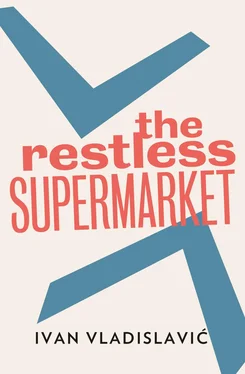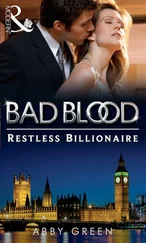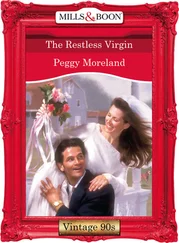But a proofreading error in a dictionary is invariably catastrophic.
Such an error is sent out into the world to multiply. It inveigles itself into the hearts of a trusting public. It works its mischief, like an odourless poison or a magistrate’s moustache, under the very nose of authority. It is exuberant and prolific. It has the capacity to generate its misleading progeny in an infinite number of places. It may introduce errors where none existed before, and unteach the best-learned lessons. It may settle down in respectable company and become naturalized as a citizen of good standing, until not even the most discriminating neighbour knows its shady past. The Great Cham himself gave us several bastards born on the wrong side of the galleys.
So it is easy to see why the dictionary should be the foremost test of proofreading skill, the Everest of proofreading, the Qomolongma, as a contracting Sherpa (7) might style it. Sadly, I was never able to plant my blue pennant on this summit.
After dictionaries, I would say that certain kinds of reference work present the greatest challenges: maps, calendars, timetables, technical manuals, logarithmic charts, diagnostic cyclopaedias, operating instructions, recipe books, telephone directories. And I was fortunate enough to make the last-mentioned field my own for two decades and more.
Erasmus of the Department once told me that some very authoritative authors did not regard publications such as these as proper books. In the opinion of these gentlemen, and Charles Lamb was mentioned by name, almanacs and guidebooks are ‘non-books’ — biblia abiblia , they spitefully put it. I wouldn’t know about that. When someone says, ‘Are you in the Book?’ which book do they have in mind — Essays of Elia ? Even the Bible, that perennial best seller, needs qualifying as the Good Book; but the Book, plain and simple, is the telephone directory, and that’s all there is to it.
The demands of the telephone directory are different to those of the dictionary, of course. The emphasis falls less on first principles and final appeals than on service and convenience. Here, the errors the proofreader commits may be ranked according to the degree of inconvenience that results. On this scale, misspelling a surname but maintaining its alphabetical position is the least of blunders. People are understandably particular about the orthography of their personal names, especially those in which doubled consonants or optional concluding vowels create many variants: ‘with one t’ (or two) and ‘with an e’ (or without) are most commonly specified. But the fact is that only the most forgetful ever need look up their own telephone numbers in the directory, and people are as lax about the spelling of others’ names as they are finical about their own, and so the chances of causing offence are negligible. An error in the address is more bothersome; it may lead to misdirected mail, or turn an outing into a wild-goose chase. But again, few people consult the directory to obtain addresses. Placing a name out of alphabetical order is rather more serious: the user of the directory might not be able to find the number he is seeking. But the gravest error a proofreader can commit is undoubtedly a wrong number. It is inconvenient for the user, who is unable to reach the party he seeks; and it is annoying for the subscriber, who does not receive his calls; but for the third party whose number has been given by mistake, and who therefore receives all the misdirected calls, it can be a nuisance beyond enduring. Should this innocent bystander be a private citizen, and the directory entry falsely advertising his number a commercial enterprise, the volume of wrong numbers may be such that the victim has no choice but to sacrifice his own number, effectively rendering himself invisible.
The proofreading of numbers is a taxing business, requiring the highest levels of concentration. Needless to say, I was rather good at it. Not infrequently, I was seconded to assist in difficult operations involving other directories. But the one task that always gave me grey hairs, in the days when their colour still concerned me more than their number, was the proofreading of the emergency telephone numbers. I give them here to show that I have not lost my touch entirely, and also because one can never be too careful these days. Please note that they are for the Greater Johannesburg area only.
 Flying Squad 10111
Flying Squad 10111
 Ambulance 999
Ambulance 999
 Fire Brigade 624-2800
Fire Brigade 624-2800
 Hospital 488-4911
Hospital 488-4911
 Poison Information Centre 642-2417
Poison Information Centre 642-2417
 Water 403-3226
Water 403-3226
 Electricity 080011-1550
Electricity 080011-1550
 Gas 726-3138
Gas 726-3138
*
As a young man, I briefly entertained the ambition to wield the blue pencil. There have been some fine editors, even of novels, and a handful who are virtually illustrious. Saxe Commins of Random House, whose famous blue staff could strike poetic bubbly from the most prosaic rock. Pascal Covici, midwife and manservant to John Steinbeck. Maxwell Perkins of Scribners, topiarist of the verdant shrubbery of Thomas Wolfe’s imagination. All Americans, you’ll note, adept at bathing themselves in limelight.
But there has never been a famous proofreader. God forbid. If one should ever pretend to an exalted position, treat him with circumspection. He is undoubtedly a charlatan.
I became a proofreader; there was hardly a choice involved. Proofreaders are born, and made, in the back rooms.
As for being a fabulist, nothing was further from my mind. There are more than enough of those. In any event, invention never interested me. I had no wish to add to the great bloated mass of the given; I wished to take something away from it. To be not a contributor, but a subtractor. The impulse was alembical. Possibly even alchemical; over the years, my attention shifted more and more from the perfected product to the parings, the shavings, the dross. In the end, I was only happy when I was up to my elbows in rejectamenta. Mr Crusty was the wrong label; Mr Spare Parts might have suited me. Some people found the idea unpleasant. Merle would not let me rest.
‘You know Aubrey, when I see you sweating over this system of yours, it makes me sad.’
This was a new one. The Records always made her giggle like a schoolgirl.
‘How’s that?’
‘What’s going to become of it? It’s all very well us amusing ourselves with it, but it would be nice if it had some broader application, if more people could somehow … use it.’
For a moment I thought she was going to stoop to that ghastly American ‘utilize’, but ‘use’ was bad enough. Spilkin had said something similar: What are you going to do with it? What is it for ? This was rich, coming from the fun-and-games specialists, the hedonists. They were up to something.
‘My Records have a use, thank you very much. I’ve said it a thousand times: it’s a system of exempla. Each of these entries is a stitch in time, my dear.’ Dear was daring.
‘But who’ll be interested in it in this unwieldy form? It’s raw material, really, it’s all odds and sods. You should work it up into something longer, something people could read.’ She was turning some of my clippings over, sizing them up shrewdly, as if imagining ways of tacking them together with a storyline. ‘Paragraphs and things, threaded together. The cobbling would be fun.’
Читать дальше

 Flying Squad 10111
Flying Squad 10111 Ambulance 999
Ambulance 999 Fire Brigade 624-2800
Fire Brigade 624-2800 Hospital 488-4911
Hospital 488-4911 Poison Information Centre 642-2417
Poison Information Centre 642-2417 Water 403-3226
Water 403-3226 Electricity 080011-1550
Electricity 080011-1550 Gas 726-3138
Gas 726-3138










